The Love of Old Glory: Ellsworth Miller’s Life of Patriotism
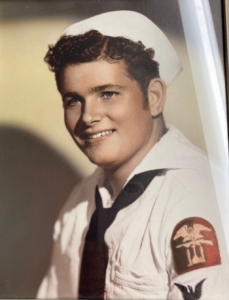
In loving memory of Ellsworth Miller as he passed peacefully in May 2023.
“Good morning Old Glory,” are the first words Ellsworth (Ells) Miller, 96, has said for the past seven years. His daily routine began and ended with a salute to the American flag he proudly hung on the balcony of his apartment at Church of God Home in Carlisle. His apartment balcony faced the Army War College which plays Reveille to begin the day and Retreat in the evening to end duty. Ells, a World War II veteran, rarely missed a chance to honor the flag and the country he loves deeply.
Ells recently moved from his independent living apartment to a skilled nursing room at Church of God Home as his medical needs have called for additional care. He receives daily care from Homeland Hospice, a nonprofit hospice program that serves communities throughout Central Pennsylvania. Ells’ team includes daily visits from a Certified Nursing Assistant (CNA) and routine visits from a nurse and chaplain.
To know Ells is to know a kind and gentle heart filled with unconditional love for his God, country and family. He is quick with a joke and dreams of sunny days fly-fishing at his cabin in Pine Creek Gorge. At 96, Ells is part of the Greatest Generation which includes people shaped by the Great Depression and World War II.
Ells was drafted by the United States Navy when he was 18 years old and earned the rank of Third-Class Motor Machinist. The United States was embroiled in battles in Europe and the Pacific Theater, which included the waters on the Pacific Ocean near Japan. Ells completed basic training in the Great Lakes and pre-ship trainings in Norfolk and Boston before leaving Fort Pierce in Florida aboard the USS Francovich for its maiden voyage.
“We were close to Cuba and we heard about the atomic bomb,” Ells says. “We were relieved the war was over.”
As the USS Francovich began its return trip to Fort Pierce, a hurricane hit the region causing three days of treacherous travel for Ells and his shipmates.
“We were bounced around the ship nonstop,” Ells adds. “All we saw was rain and waves of water.”
Following his time on the USS Francovich, Ells served our country in a variety of capacities before his honorable discharge when he was 20 years old. He left the Navy on July 25 and married his beloved Dottie the next day proudly wearing his Navy uniform. Ells and Dottie were married for more than 70 years and had two children, two grandchildren and several great grandchildren. They are the loves of his life.
After his service, Ells became an electrician and was employed by the Carlisle Barracks followed by Naval Support Activity in Mechanicsburg. Following his retirement in 1981, Ells worked in the pro shop at the Carlisle Barracks Golf Course until 2003. His career challenged his intuitive mind and fulfilled his sense of duty by continuing to support the military efforts of our country.
Homeland Hospice recently honored Ells with a special pinning ceremony for his military service. Homeland honors all who served through its We Honor Veterans program, created by the National Hospice and Palliative Care Organization (NHPCO) in collaboration with the Department of Veterans Affairs (VA). The program works to improve the quality of health care for all veterans. Homeland Hospice has been part of the program for nine years.
The ceremony ends with a salute to the honored veteran, which brought tears of pride and remembrance to Ells. The flags from the ceremony along with a special certificate he received is proudly on display in his room.
While Ells’ health varies from day to day, there is no such thing as a bad day. He approaches each day as a gift from God and feels fortunate for his countless blessings. As he continues on his end-of-life journey, he recounts his time of service with astounding clarity while imagining where his next steps might take him as he longs to reunite with his darling Dottie who died in 2021.
For Ells, Psalm 118:24 has been and continues to be his guiding light. “This is the day the Lord has made; we will rejoice and be glad in it.”

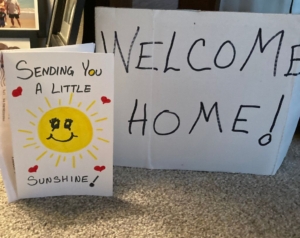 couples pledge on their wedding day. These words become the most sacred of promises during challenging times.
couples pledge on their wedding day. These words become the most sacred of promises during challenging times.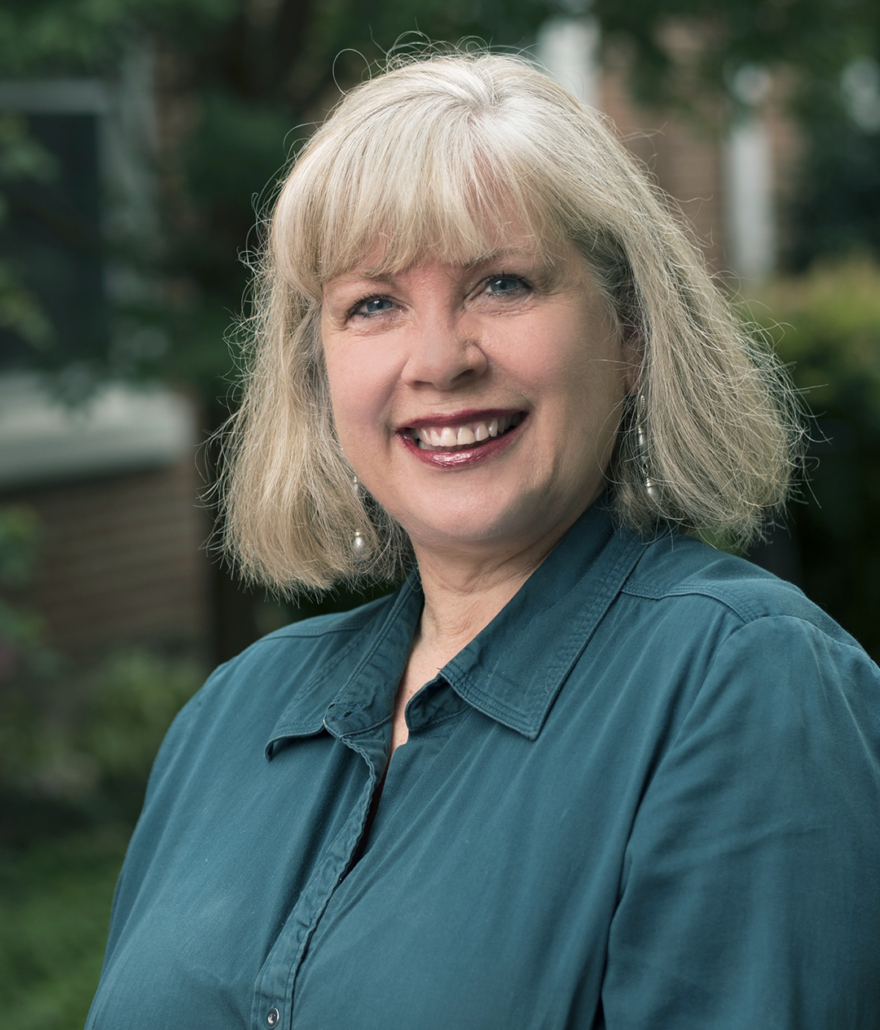
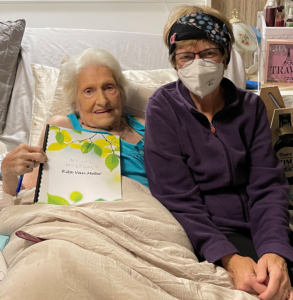 by staff at Geisinger Lewistown Hospital after she survived a medical episode in August of 2022. During her hospitalization, Rita suffered a heart attack and received last rites from her priest at Sacred Heart Church of Lewistown. She spent nine days in the hospital followed by one month in a nursing home. Rita turned to the services provided by Homeland Hospice, a nonprofit hospice program that serves communities throughout Central Pennsylvania, which enabled her to return home and live independently. Rita’s strength to overcome medical milestones is just one of the many chapters in the story of her life. She recently shared her life story through Homeland Hospice’s My Life, My Legacy program.
by staff at Geisinger Lewistown Hospital after she survived a medical episode in August of 2022. During her hospitalization, Rita suffered a heart attack and received last rites from her priest at Sacred Heart Church of Lewistown. She spent nine days in the hospital followed by one month in a nursing home. Rita turned to the services provided by Homeland Hospice, a nonprofit hospice program that serves communities throughout Central Pennsylvania, which enabled her to return home and live independently. Rita’s strength to overcome medical milestones is just one of the many chapters in the story of her life. She recently shared her life story through Homeland Hospice’s My Life, My Legacy program.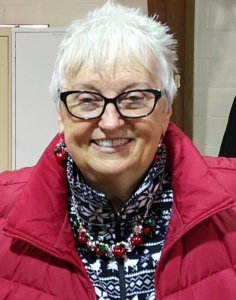 but since moving into her personal care suite, people can see a difference.
but since moving into her personal care suite, people can see a difference.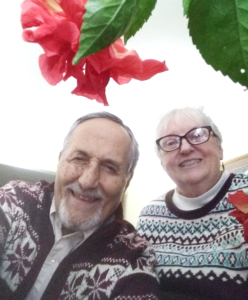 to be mistreated.”
to be mistreated.”
